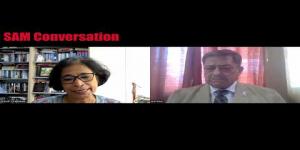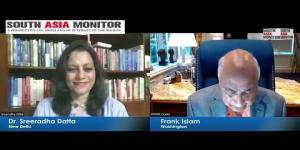COVID-19 tests trend down in Bangladesh. That’s bad news
The number of sample tests for novel coronavirus infection has fallen in Bangladesh but the laboratories conducting the tests have grown paradoxically, betraying a fall in the rate of confirmed cases

The number of sample tests for novel coronavirus infection has fallen in Bangladesh but the laboratories conducting the tests have grown paradoxically, betraying a fall in the rate of confirmed cases.
From Jun 30 to July 2, between 16,000 and 19,000 samples were tested daily, returning about 3,600 to 4,000 positive results. By comparison, the number did not exceed 13,000 in any of the last three days with the daily caseload ranging between 2,600 and 3,200.
One of the reasons for fewer tests is the fee imposed by the government for sample tests. The second reason is the scrapping of second and third tests after recovery from the disease, according to the Directorate General of Health Services.
Experts say Bangladesh is still grappling with the pandemic and the testing should not be allowed to drop under the current circumstances.
Samples are stored inside a plastic bag at Government Unani and Ayurvedic Medical College and Hospital in Dhaka’s Mirpur. These will be sent to a government-designated laboratory for testing. Photo: Asif Mahmud OveSamples are stored inside a plastic bag at Government Unani and Ayurvedic Medical College and Hospital in Dhaka’s Mirpur. These will be sent to a government-designated laboratory for testing. Photo: Asif Mahmud OveNovel coronavirus infection was first reported in China’s Wuhan on Dec 31, 2019. Bangladesh began running COVID-19 tests on Jan 21.
The data of sample tests done by DGHS show an upward trend from January to June when the number of patients and sample test laboratories increased.
The number of confirmed cases drops in line with dropping virus tests, which is why the real situation is not reflected, said Prof Be-Nazir Ahmed, former director of communicable disease control at DGHS. That hampers the management of the COVID-19 crisis.
“We can’t isolate the infected patients who are not identified. Then there’ll be new patients and patient clusters will increase as well.”
“More people will move around in times of the Eid-ul-Azha and clusters of patients will spread the contagion,” Ahmed said.
Prof Md Nazrul Islam, former vice-chancellor of Bangabandhu Sheikh Mujib Medical University, told bdnews24.com that from the very beginning, they had been suggesting 20,000 countrywide tests a day to get the first picture of the epidemic’s real scale and speed.
He admitted that the testing process has some flaws but added people are coming forward to be tested. More tests would be done if the health authorities collected samples from the sick or those showing the symptoms.
“Many people are staying at home with symptoms like cough and cold. Therefore, we’ll not get the real picture,” Prof Islam cautioned.
On Jul 2, the government imposed a fee on sample tests and the number of tests dropped by about 4,000 the following day.
“The connection between paying money and getting tested is evident. I wonder how the idea of charging Tk 200 for a test evolved. A person in financial difficulty will never go for a paid test,” he added.
As the number of tests decreased, the number of confirmed cases also dropped, Prof Islam said. In reality, more people are getting infected. For instance, confirmed cases were 23.99 percent against the tests on Jul 11, which surged to 24.1 percent on Jul 12 and 24.94 percent on Jul 13.
“This shows that there’s a daily surge in the infection, even if it’s low. We can never say that it has declined. We need more information when there’s a spike in cases, and therefore, we must conduct more tests.”
Prof Islam, a member of the national technical advisory committee on the coronavirus, said he was not aware of who the DGHS consulted with before imposing a fee for the sample test. “The DGHS took the decision and we’ll have to suffer because of it.”
Prof Nasima Sultana, the additional director general of DGHS, said her agency discussed the issue of the plummeting sample tests.
The scrapping of second and third sample tests after recovery, as advised by the World Health Organisation, a fee imposed by the government and people’s relaxed response to the prevalence of COVID-19 may have caused the dip in tests, she said.
“When tests were free of charge, there were cases when medical workers had to collect samples from 40 people in one household. People have stopped getting tested if it is not necessary. Also, they’re not as scared now as they were before. Initially, they would go for tests even if they had a normal cough and cold,” the DGHS official said.
https://bdnews24.com/bangladesh/2020/07/14/covid-19-tests-trend-down-in-bangladesh.-thats-bad-news
















Post a Comment